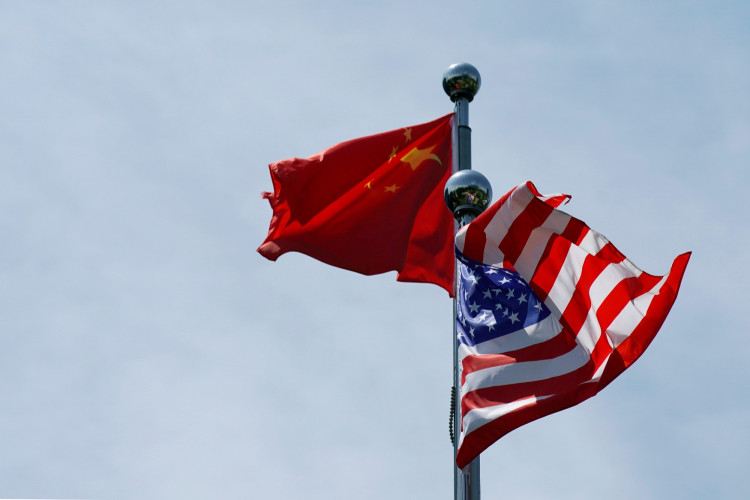The United States has successfully secured the release of three Americans detained in China for years through a prisoner swap, marking a significant diplomatic achievement in the waning days of the Biden administration. The exchange, which involved unidentified Chinese nationals held in U.S. custody, follows years of painstaking negotiations and underscores the complexities of U.S.-China relations.
"We are pleased to announce the release of Mark Swidan, Kai Li, and John Leung from detention in the People's Republic of China," a National Security Council spokesperson confirmed Wednesday. "Soon they will return and be reunited with their families for the first time in many years."
The freed Americans were set to arrive at Brooke Army Medical Center in Texas, where they will undergo psychological evaluations and reintegration preparation. Their release follows similar efforts in September when U.S. citizen David Lin was freed in a comparable exchange.
The release of Swidan, Li, and Leung ends years of anguish for their families, who had tirelessly advocated for their freedom. Harrison Li, whose father Kai Li was detained in 2016 on espionage charges, often traveled to Washington to lobby for his father's release. In a 2023 interview with CNN, he expressed fear that his father might not survive his imprisonment. "God forbid, is my dad going to come home in a box?" he asked.
Three American citizens, Mark Swidan, Kai Li, and John Leung, are on their way home for Thanksgiving after being designated as wrongfully detained in China by the U.S. government.
Thank you, President Biden! pic.twitter.com/EErtHfiXxL — Art Candee (@ArtCandee) November 27, 2024
Mark Swidan, detained since 2012 on drug-related charges, had endured years in harrowing conditions. His mother, Katherine Swidan, previously described his confinement as a "holding tank" where he experienced physical and psychological torture. Swidan was sentenced to death in 2019, further intensifying fears for his safety.
John Leung, detained in 2021 and sentenced to life in prison on spying charges, rounds out the trio. A veteran leader of several pro-Beijing groups in the U.S., his detention underscored the opaque and politically charged nature of China's judicial system.
The prisoner swap comes amid heightened tensions between Washington and Beijing, with the Biden administration actively engaging Chinese officials to secure the Americans' freedom. President Biden personally raised the issue during his recent meeting with Chinese President Xi Jinping in Peru, and Secretary of State Antony Blinken and National Security Advisor Jake Sullivan pushed for their release in high-level discussions with Chinese counterparts.
The timing of the deal is noteworthy, occurring just weeks before President-elect Donald Trump is set to take office. It removes a long-standing source of friction in U.S.-China relations, which have been strained by disputes over trade, technology, and Taiwan. Some observers believe Beijing may view the exchange as a step toward mending ties and encouraging the U.S. State Department to ease its travel advisory for China, which currently warns against the risk of wrongful detentions and exit bans.
The broader implications of the swap remain unclear. While the deal represents a significant diplomatic breakthrough, advocacy groups estimate that hundreds of Americans remain unjustly detained or barred from leaving China. The nonprofit Dui Hua Foundation has identified at least 200 U.S. citizens in such circumstances, with 30 facing exit bans.
According to the Politico, the prisoner swap has been described as a significant diplomatic achievement for the Biden administration in its final days, offering hope that additional cases may be resolved in the future.
For years, lawmakers like Rep. Chris Smith (R-N.J.) and Sen. Jeff Merkley (D-Ore.) have urged the administration to prioritize the release of Americans detained in China. Last month, the pair sent a letter to President Biden emphasizing the importance of addressing cases like those of Swidan and Li. Their release signals progress, but the sheer number of unresolved cases highlights the ongoing challenges.
Beijing's motivations for agreeing to the swap remain speculative, though experts suggest it could be part of a broader strategy to soften international criticism. China's detention practices have long been a point of contention, with U.S. officials labeling them as arbitrary and politically motivated.






